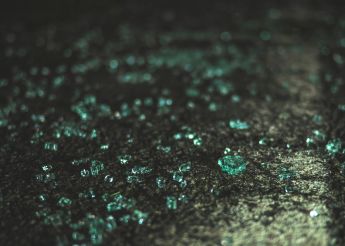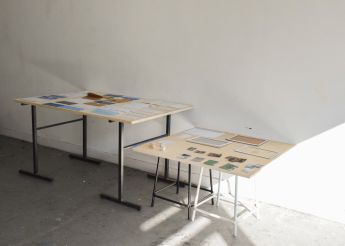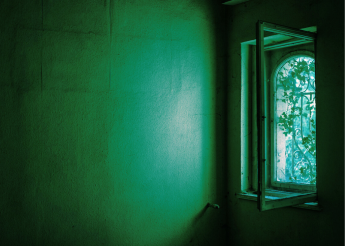My initial experience of art came by way of the surrealist artist Salvador Dalí. Aged just 11, I was indoctrinated into the world of institutional life via a lengthy stint in an approved school. That old Victorian convent was to be my reluctant place of abode till I was 16. With its high ceilings and gloomy long passageways, it was a frighteningly imposing building. The kind of edifice designed to oppress and assert its will upon you and quite capable of leaving a person feeling both inferior and chastised simultaneously. It was here that I first saw the Salvador Dalí painting titled Swans Reflecting Elephants, which evoked two separate feelings, fascination and disquiet.
Even though my interest in art stemmed from an early age, I came to paint relatively late on in life. Being colour blind, I believed it to be a hindrance for a painter so I steered clear until my late 30’s. During these long years of confinement, art has been my one constant companion. Without its loyalty, I would hold a damn sight more of the pain and fear that shaped my life from a young age. Perhaps the most prominent factor in a person’s removal from society is finding that ability to adjust to the isolation.
Right at the outset, as that steel door slams shut on the first of many nights of incarceration, you find yourself alone. No family, no friends, husbands, wives or children. Completely devoid of loved ones, the weight of that isolation is truly felt.
I vividly remember the next morning, as the dawn of that new day illuminated the festering, dilapidated Victorian cell that was to be my new abode for however many years to come. Tuning into the sounds of the disembodied men beyond the thick cold walls: stirring, coughs, snorts and groans carrying along the landings. A low rumble as prison guards mount the steel stairs in unison at either end of the wing. My mind’s eye envisions a lumbering beast inhaling its first breath of fetid air. I can almost hear it groan in resignation. “The key is acceptance” a voice whispers in my minds’ ear. Taking my own deep breath, I stand up and stare at the securely locked heavy steel door in front of me.
My freedom is gone. I no longer have the autonomy to do something as simple as open my own door!
From here on in, I’m told when to eat, to wash, to exercise, even when to speak. I’m told what is required of me and left with no illusions of what the consequences will be for any infringement of the rules. Reduced to nothing more than a mere number accompanied only by a profound lack of voice.Being encased within steel and mortar shouldn’t and mustn’t be allowed to alter the fundamental essence of a human being. I, like many others amid the brutality and apathy of the prison system, have either retained or found the ability to be creative.
Some write prose or poetry, others paint, draw or play music. Whatever particular bent they have, it’s the one thing humans have in common: we are all creatives, by our very nature.







